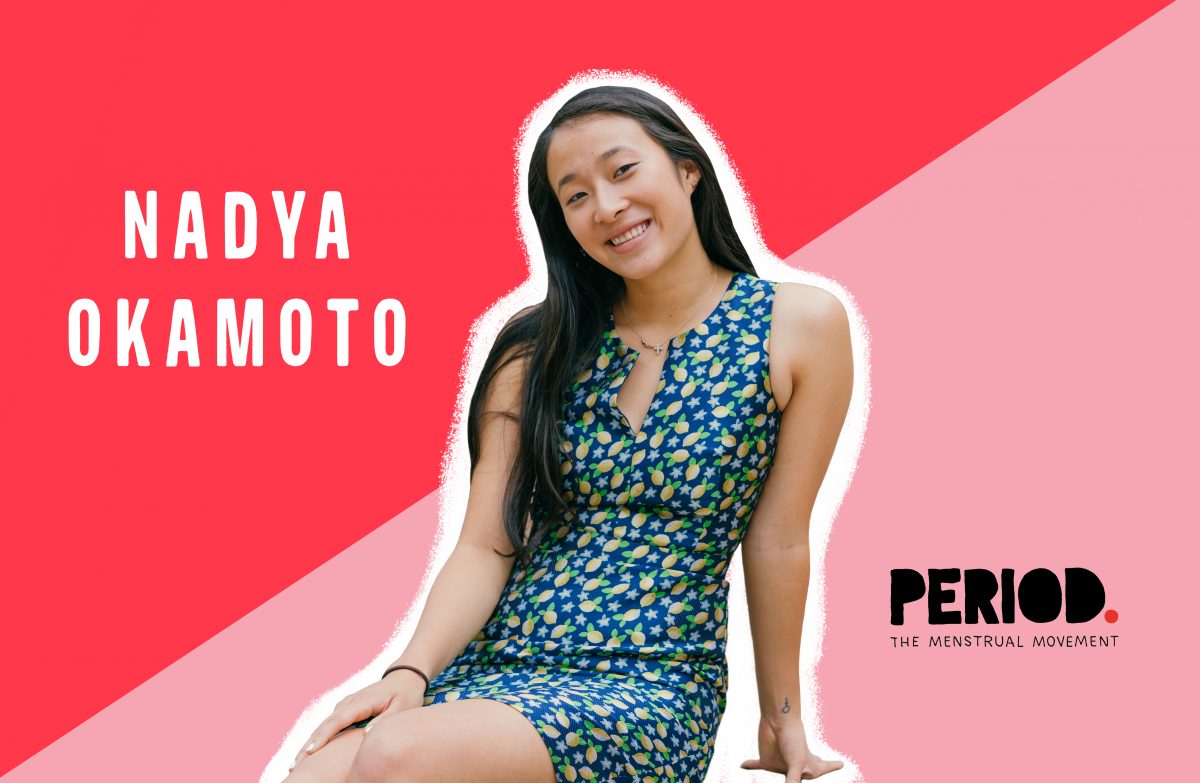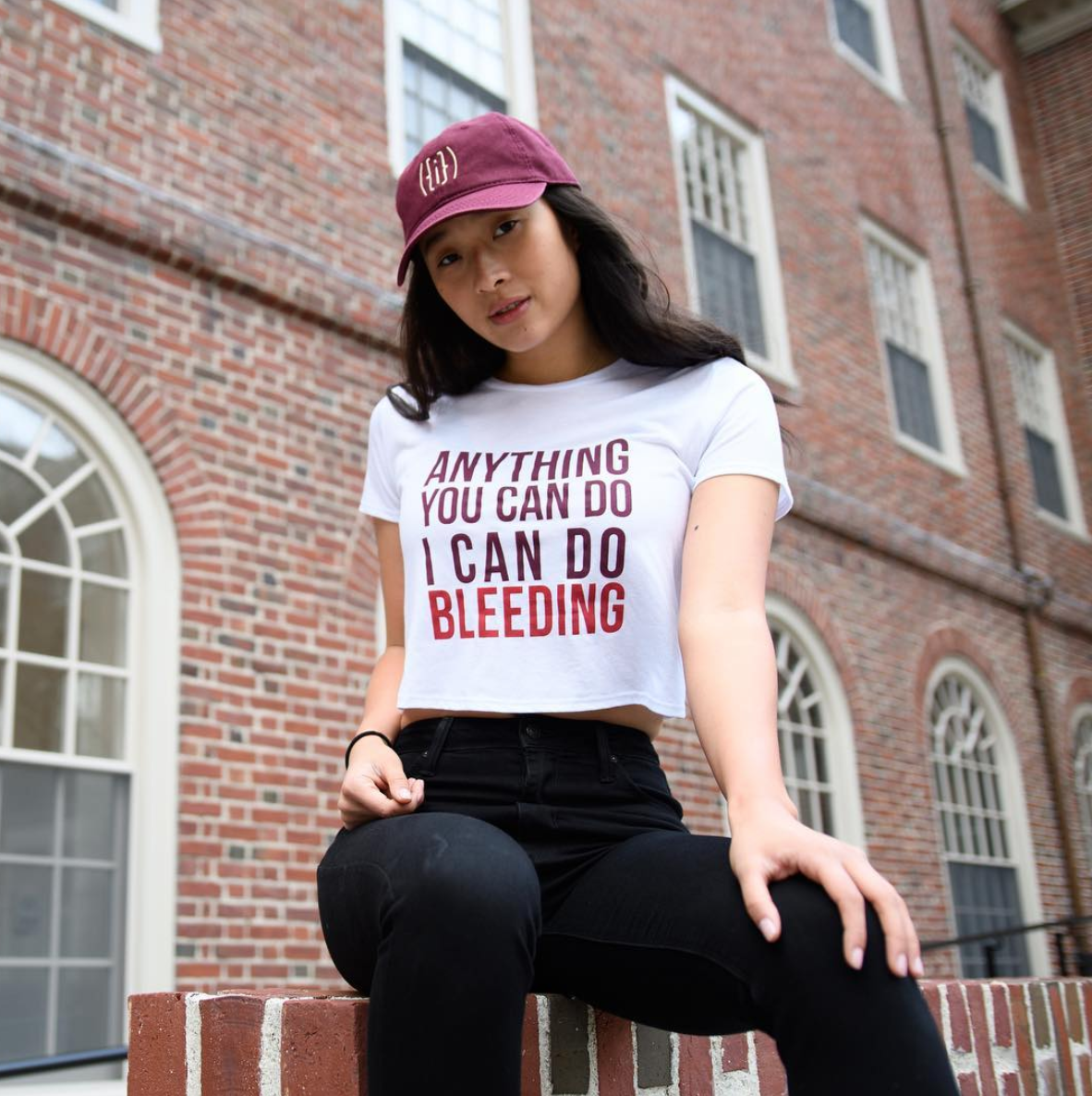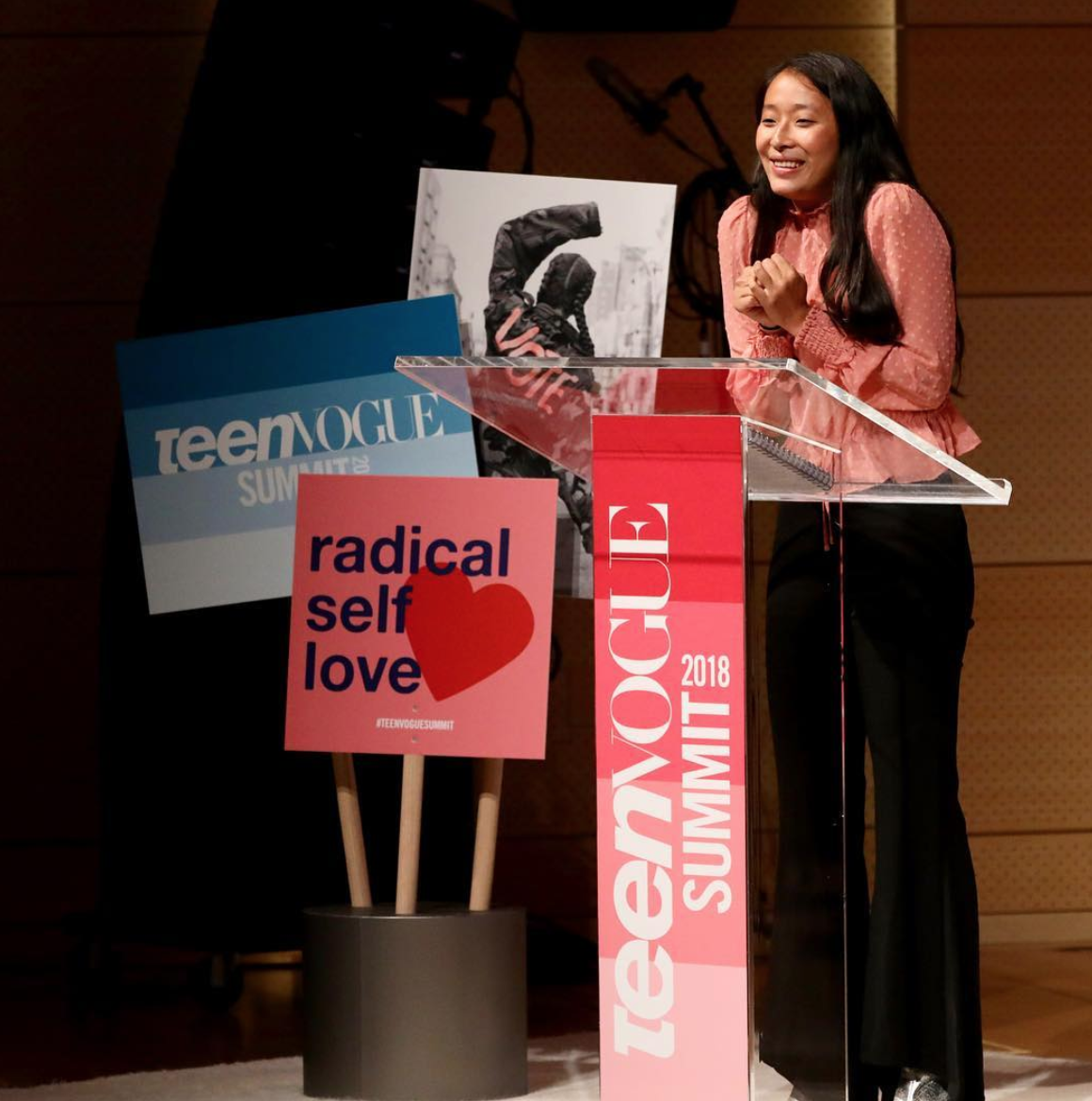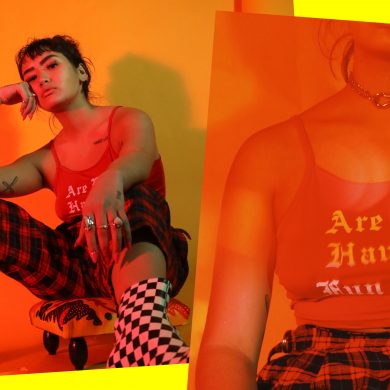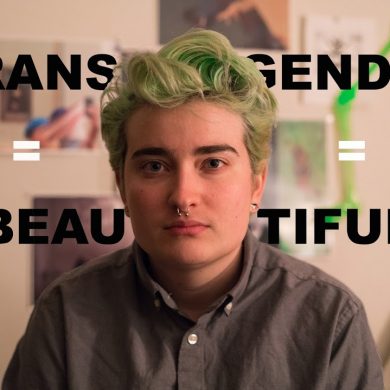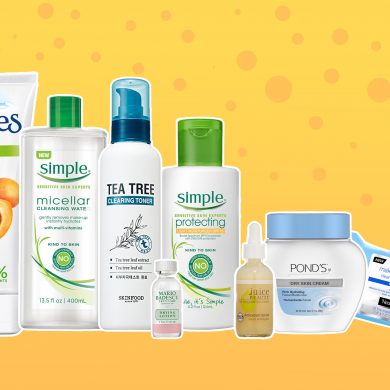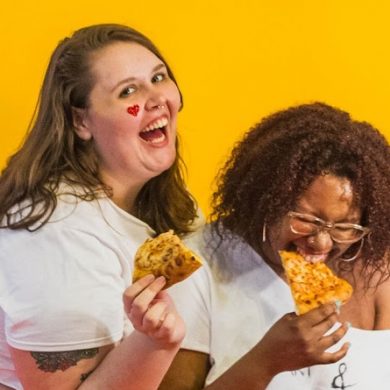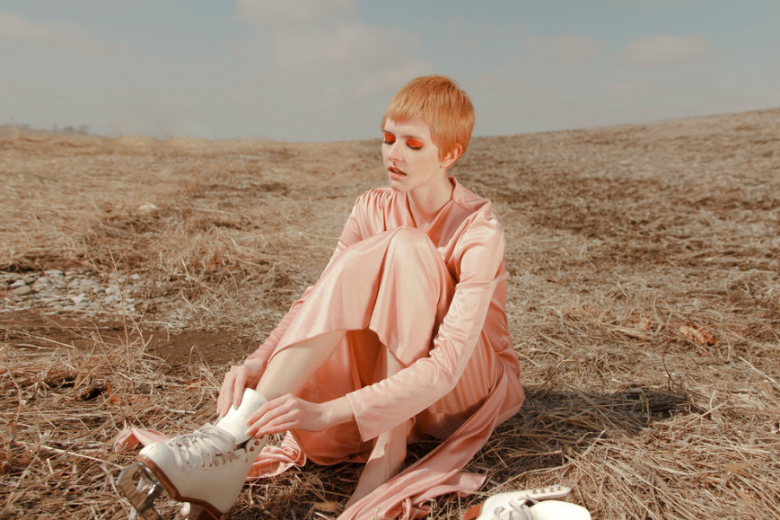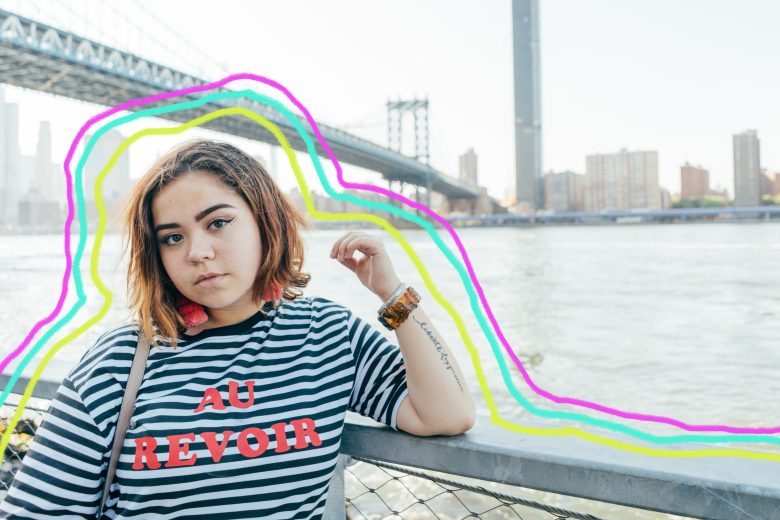This Girl Boss is Taking On The World, One Tampon at a Time
This Girl Boss is Taking On The World, One Tampon at a Time
Ever dreamed of running your own company, with an office that overlooks the bustling streets of 5th avenue (Central Park and Bergdorf Goodman, to be exact), and creating a platform that’s changing the world? Well, Nadya Okamoto already has. She is the founder of PERIOD. The Menstrual Movement, a non-profit organization that advocates for menstrual hygiene for menstruators around the globe.
In addition to being a badass boss girl, Nadya is also an author, writer, speaker, and rising junior at Harvard (although she’s taking a gap year, to tour on behalf of her organization). In the midst of all this stress, she even maintains a perfect complexion! She’s flawless, honestly. Long story short, Nadya is a Gen Z queen. And yes, she’s only 20.
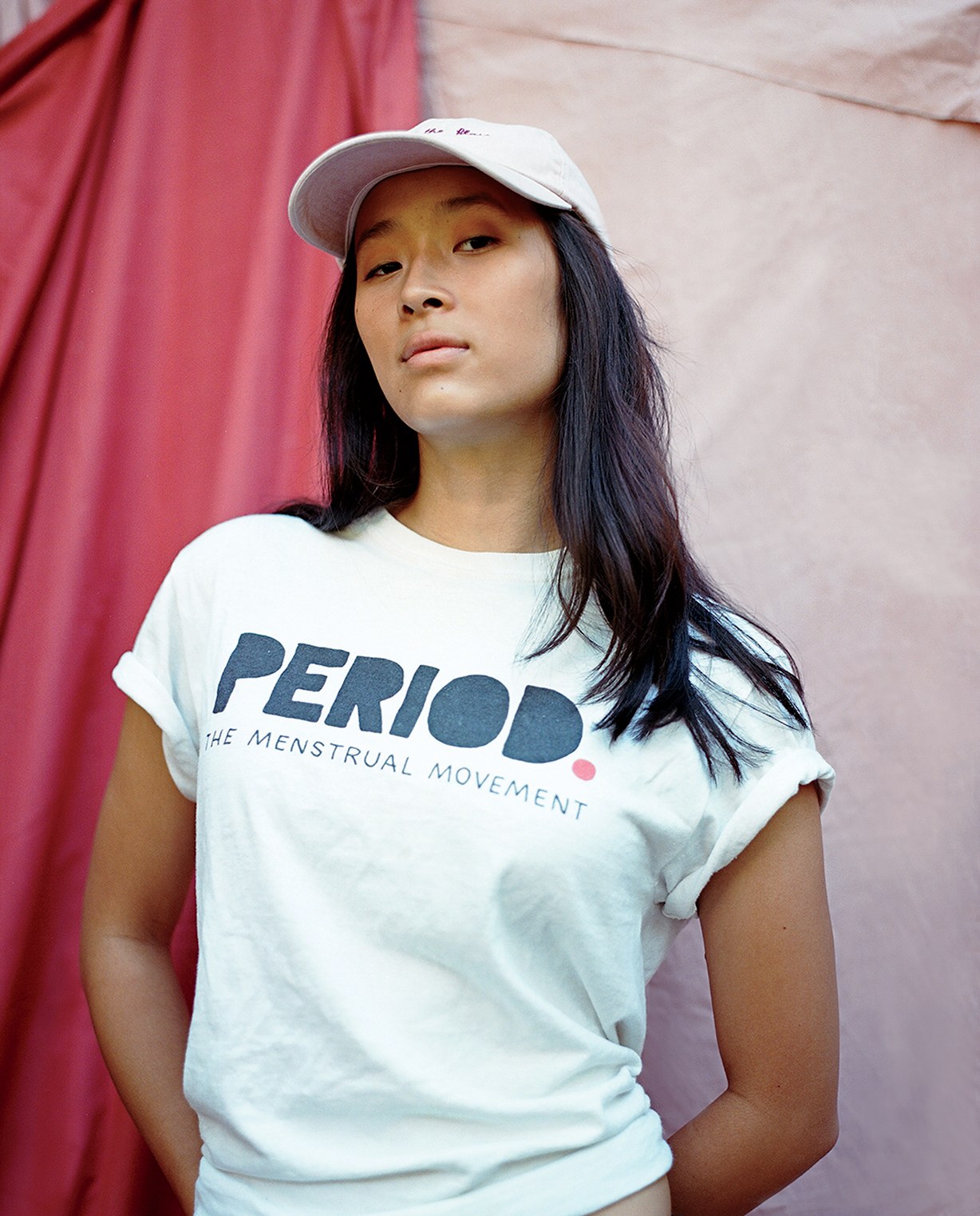
To see more, follow Nadya at @nadyaokamoto and visit www.period.org
What is PERIOD?
So our official name is PERIOD. The Menstrual Movement, but in short we just call it PERIOD. We’re the largest NGO (non-governmental organization) in women’s health, and the fastest growing one here in the United States. We provide and celebrate menstrual hygiene through service, education, and advocacy. So, we do that through a number of ways: the global distribution of period products to people in need, and we also work in social and systemic change towards menstrual equity. That includes equitable access to period products, and we do that through chapters. We have over 200 registered chapters at universities and high schools around the US and abroad- they’re basically like school clubs, but it’s a really large network of people.
What inspired or prompted you to start this organization?
I started the organization when I was 16, and I was inspired by my family’s experience with housing instability. My family lived without a home of our own during my freshman and sophomore years of high school, and it was that experience of legal homelessness that really sparked my thinking of privilege as being more of a spectrum. I became more aware of how much privilege I had compared to other people, as well as how underprivileged I felt in a lot of other ways.
I became accidental friends with various homeless women, and I heard their stories of using toilet paper, socks, brown paper grocery bags, or cardboard to take care of their period.
During that time, my commute to school was about 2 hours long, and one of my bus stops was in front of a bunch of homeless shelters in Portland, Oregon. It was through those experiences that I became accidental friends with various homeless women, and I heard their stories of using toilet paper, socks, brown paper grocery bags, or cardboard to take care of their period. From then on, I just became obsessed with it. I was struggling with PTSD, depression, and self-harm- I was around 16 at this time- but being obsessed with this other issue sort of became my safe-haven of distracting myself.
I think I was sort of in a place of wanting to take action, especially coming out of a really abusive relationship, and also coming to terms with the fact that I grew up with a lot of domestic abuse. Ultimately, I was really wanting to find my voice. I started the organization a few weeks after my family got back on our feet, and we’re here now *gestures to office*.
Our organization has two offices, one here (NYC) and our headquarters are in Portland. So the rest of my full-time staff is in Portland; that’s where my operations director, programs director, and development director are all based.
And yeah, this is PERIOD.
Why are periods so significant? Why should people advocate for and care about the menstrual movement?
That’s actually a question that we get all the time. I think for us, it’s very clear that periods have an impact on the world. The data is all there. Periods hold people back from being able to discover and reach their full potential, if they don’t have adequate access to menstrual hygiene.
Periods hold people back from being able to discover and reach their full potential, if they don’t have adequate access to menstrual hygiene.
There are so many stories about homeless women who don’t have access to bathrooms or period products, or even clean clothes, and they don’t know where the next public restroom is going to be. Often times, it’s during that time of the month where they think it’s better to sit in one place and simply wait out their period. Also, U by Kotex just did a campaign where they found that 1 in 4 women in the US, in the last year, struggled to afford period products due to a lack of income. 1 in 5 women, because of their periods, had to miss an important meeting, had to miss a school event, a family event, etc. So when you think about it, this is something that prevents people from competing at the same level. When you think about cramps, 1 in 10 women in the US have endometriosis- a condition that causes cramps to be so debilitating when you’re on your period, that you literally cannot get out of bed.
Periods are something that affects the majority of our population, for an average of 40 years of their lifetime, on a monthly basis. Periods can be extremely painful, and periods often get in the way of people living both comfortably, and at their full potential. What PERIOD. does is try to eliminate the shame that is caused by periods. We aim to help menstruators feel less self-conscious about their periods, but also help people gain access to period products when they need them.
How did your organization gain notoriety so quickly (and successfully)?
So I had no idea what I was doing, and I still don’t have any idea what I’m doing. I Google everything. When I was starting out, I would Google things like, “what is a non-profit?”, “what is a board of directors?”, “what’s the IRS?”, “how do you non-profit taxes?”, etc. I’ve always Googled everything, and just asked questions; that’s the mentality that I have now as well. Even when I was publishing a book, I searched things like “how do you find a book publisher?” or “how to find an agent.”
I think though that, ultimately, I gained notoriety by just following my gut, as well as documenting everything on social media. People sort of found me through explore pages, or found me through press, and then press found me through social media. It was a lot of embracing the natural tendencies of a Gen Z person, so basically just posting everything on social media.

Can you tell us a little bit about the book you wrote?
Well, my book is about periods- it’s called Period Power: A Manifesto for the Menstrual Movement. It’s sort of inspired by the Riot Grrrl Manifesto of the 1990’s feminist movement, so my dream for my book is for it to be the manifesto for fourth-wave feminism. That would include intersectional feminism- talking about periods, but also talking about moving away from the gender binary, and how young people can play a role in the menstrual movement. So yeah, my book is coming out with Simon & Schuster this October.
You co-founded the organization with a male friend, which is amazing. What sort of role do you think males could/should play in this movement?
Yes! I founded PERIOD with Vincent Forand. I think that all non-menstruators also have to talk about periods; the reason for that is because when you look at how we’re actually going to make social and systemic change, our population is still about 50/50. So we all need to change our mentality and culture in order for the menstrual movement to be successful. Also, so much of it has to do with policy. When you really think about it, 80% of our Congressional positions in the US are still held by men, so we really need that 80% to think about periods as a legitimate issue. I think that non-menstruators have to be allies, and should take part in this movement. We have a number of men on our team- our lead editor of THE RAG is a guy- I think that’s really important.
What struggles have you endured on this journey? On the flip-side, what have the highlights been?
I mean, I think the highlights are easy- meeting people, being able to travel, as well as being about to talk about my story and hear the stories of others. That’s definitely my favorite highlight, being able to meet such amazing humans.
The downside of all of this is that it can be really, really tiring. Running a non-profit, while also juggling high school and college can be really exhausting. I also ran for office last year- a local government position for Cambridge City Council; I ran against 26 other candidates, most of whom were decades older than me. Ageism is also a very real thing. Fighting for funding, fighting for credibility is a challenge; I think that as young people, we have to work 10x harder to be taken seriously.
I’ve always been someone who does a lot, and I think that can be tiring. Overall, I think being able to find balance in it all has been a struggle.
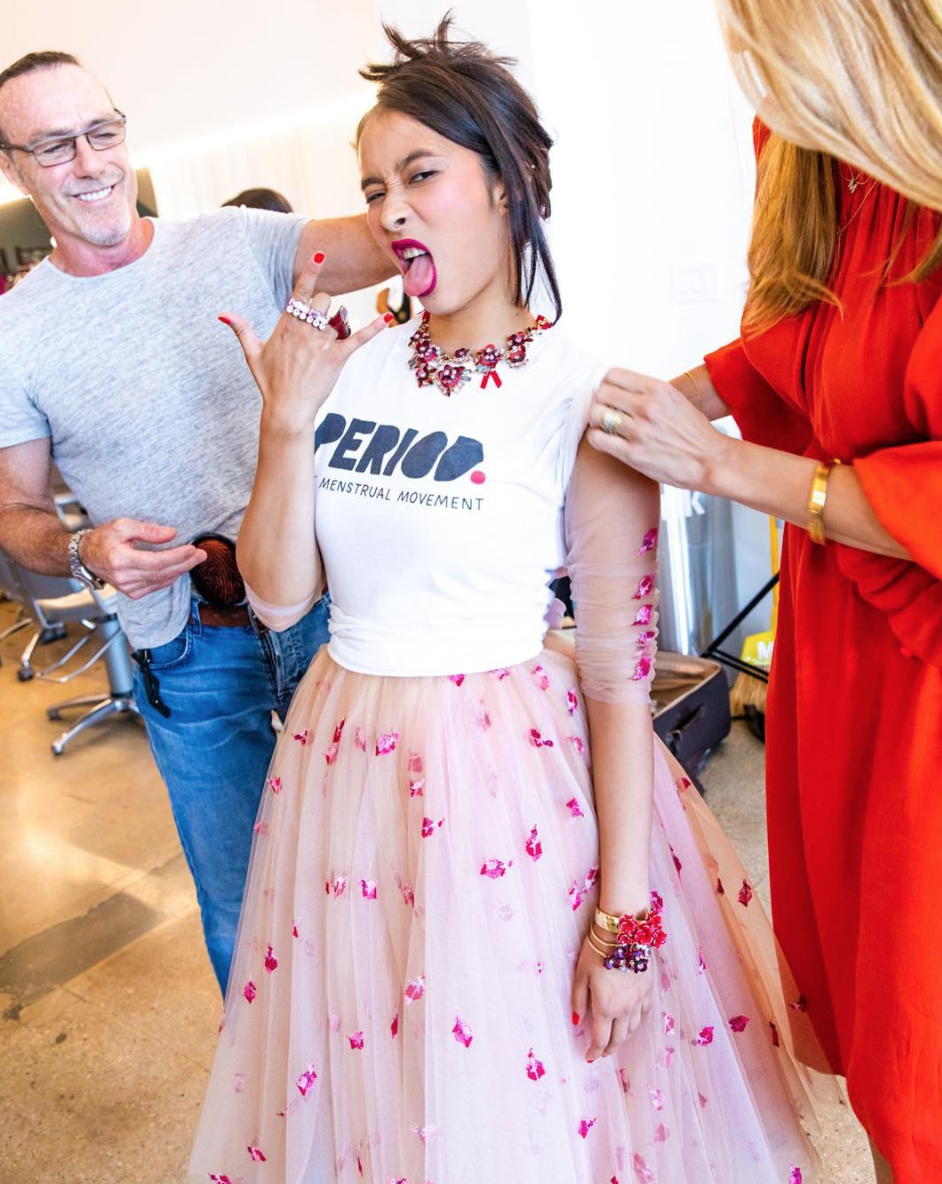
What are your goals for the company, and where do you hope to be in a few years from now?
I honestly have no idea where I want to be in 5-10 years, I don’t even know where I want to be in 1 year. For the company, I think it’s really about how we can be making sustainable, long-term change through policy. I aim to just keep growing our chapter network, as well as our network as a whole.
What do you want people to know about this organization, or about the menstrual movement in general?
I want people to realize that everyone can play a part in it. I think that one of the misconceptions with hearing about organizations is that there’s a target demographic, or that you can only be involved if you have certain qualifications. I think that what PERIOD. embodies is that anyone should and can be involved.
No matter what your identity is, your background, resources, qualifications, or age- we will find a place for you to work with us, ultimately make a difference.
No matter what your identity is, your background, resources, qualifications, or age- we will find a place for you to work with us, ultimately make a difference.
What’s the number 1 thing you’ve learned from this experience?
To not be a control freak. To trust other people.
If you could give advice to other young people who have aspirations to make a difference, in big ways or small, what would that advice be?
I would say to just do it. My Instagram dm’s always fills up with questions from young leaders who are like, “I want to do this thing, and I’ve been thinking about it for a long time, but I don’t know where to start.” And honestly, no one knows where to start. There’s no rules, there’s no guidelines- you just have to do it. You have to think about what’s at your immediate disposal, in terms of resources and network, and just go for it.

